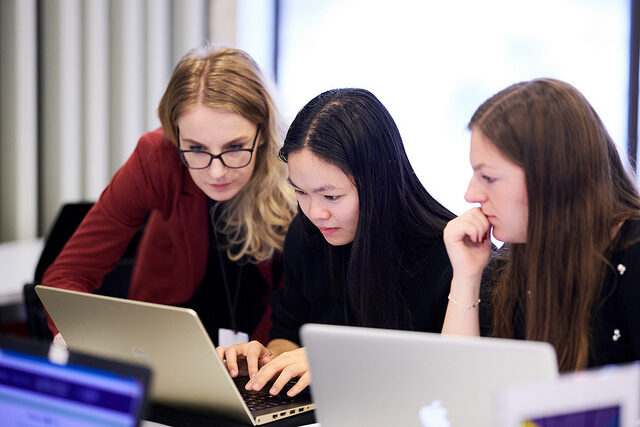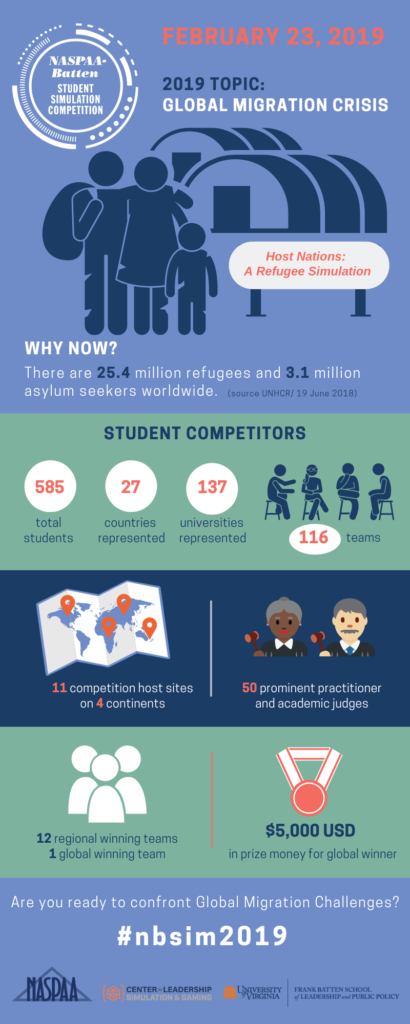
Migration is a mounting global problem with no clear solutions. A daylong international competition at the University of Michigan will challenge public policy students to test their skills on this important issue.
Based on real-world data, each student team will be a virtual nation in the competition. As a country, they will have to balance their budgets, test their diplomacy and make a choice on migration. Will one impact the other?
That is the challenge posed in Host Nations: A Refugee Simulation. Twenty-three students from 14 schools will converge at the Gerald R. Ford School of Public Policy Feb. 23 to compete and test their own ideas on how to solve the problem.
 Teams of five students, including a team from the U-M Ford School of Public Policy, will be asked to balance their assigned country’s budget with the needs of its citizens, economy, and the migrants.
Teams of five students, including a team from the U-M Ford School of Public Policy, will be asked to balance their assigned country’s budget with the needs of its citizens, economy, and the migrants.
Through a turn-based, participatory simulation software, students will each represent a cabinet-level position, entering their policy decisions into the simulation software to test their diplomacy and problem-solving skills on real-world data.
After two rounds of the simulation, each team will write a policy memo and present it to expert judges. Ford School faculty John Ciorciari, former Ambassador Melvyn Levitsky, and Ann Lin, will evaluate each team’s decision-making logic. Ultimately, one team will be announced a regional winner that goes on to compete at a global competition with a chance to win $5,000.
“With 24.5 million refugees worldwide, this year’s NASPAA-Batten Student Simulation Competition will challenge students to apply their public policy skills to solve a very real problem,” said John Ciorciari, associate professor of public policy and director of the Weiser Diplomacy Center. “The competition embodies the type of real-world skill-building opportunities we strive to give our students at the Ford School, so I’m proud that we are hosting and competing this year.”
The competition—a partnership between the University of Virginia Frank Batten School of Leadership and Public Policy and the Network of Schools of Public Policy, Affairs, and Administration (NASPAA)—will connect students from 11 global host sites including Dhaka, Cairo, Mexico City and San Francisco.


